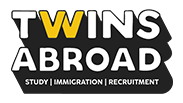How to Network With International Recruiters While Studying Overseas
Studying abroad is an exciting journey filled with new experiences, cultures, and academic challenges. Beyond academics, it’s a golden opportunity to build a global professional network. One of the most crucial aspects of this is connecting with international recruiters who can open doors to internships, job opportunities, and valuable industry insights. This guide will walk you through effective strategies to network with international recruiters while studying overseas.
1. Understand the Importance of Networking
Networking is more than just exchanging business cards or adding connections on LinkedIn—it’s about cultivating genuine relationships that can lead to meaningful professional opportunities. For international students, effective networking offers multiple advantages. It provides firsthand insights into the job market of the host country, making it easier to understand where opportunities lie and what employers expect. It also opens doors to internships and job placements that might not be publicly advertised. Moreover, networking helps students grasp the subtle cultural nuances that influence professional interactions, enabling them to adapt more effectively. Perhaps most importantly, it builds the confidence needed to engage with industry professionals in diverse settings, both formal and informal.
2. Leverage University Resources
Most universities offer a plethora of resources to help students connect with potential employers:
Career Services
University career centers often host workshops, resume reviews, and mock interviews. They also organize career fairs where students can meet recruiters from various industries. citeturn0search1
Alumni Networks
Connecting with alumni can provide firsthand insights into specific industries or companies. Alumni are often willing to mentor or refer students to opportunities within their organizations.
Faculty Connections
Professors and academic advisors often have industry contacts. Engaging with them can lead to introductions to professionals in your field of interest.
3. Attend Career Fairs and Networking Events
Career fairs are excellent platforms to meet recruiters face-to-face. To make the most of these events:
- Research Participating Companies: Understand their mission, values, and job openings.
- Prepare Your Elevator Pitch: A concise summary of your background, skills, and career aspirations.
- Dress Professionally: First impressions matter.
- Follow Up: Send a thank-you email or message to the recruiters you spoke with.
4. Optimize Your Online Presence
In today’s digital world, your online presence plays a vital role in shaping how you network, especially on platforms like LinkedIn. A well-crafted profile—with a professional photo, detailed experience, and a strong summary—serves as your digital first impression. But it’s not just about setting up your profile; connecting strategically with recruiters and professionals in your field, and engaging actively by sharing relevant content or commenting on industry posts, can significantly boost your visibility and credibility in the global job market. For fields like design, writing, or programming, having an online portfolio can showcase your work to potential employers.
5. Join Professional Associations and Student Organizations
Joining professional associations or student clubs while studying abroad can open up numerous networking opportunities. Attending conferences and seminars allows you to learn directly from industry professionals and engage in meaningful conversations. Participating in workshops not only helps you build new skills but also connects you with peers who share similar goals. Taking on leadership roles within these organizations showcases your initiative and often puts you in direct contact with key figures in your field, expanding your professional network even further.
6. Seek Informational Interviews
Informational interviews are an excellent way for international students to learn about different roles, companies, and industries in a more personal and relaxed setting. The first step is identifying professionals who are working in your field of interest—LinkedIn and alumni directories are great places to start. Look for people whose career paths align with your goals or who are working at companies you admire.
Once you’ve identified someone, reach out respectfully with a brief message explaining who you are and why you’d like to speak with them. Be clear that your intention is to learn, not to ask for a job. If they agree, prepare thoughtful questions in advance. You could ask about their journey into the field, what a typical day looks like, the challenges they face, and what advice they would offer to someone just starting out.
Finally, always follow up with a thank-you note. Express your appreciation for their time and the insights they shared. A simple gesture of gratitude goes a long way in building lasting professional relationships.
7. Understand Cultural Nuances
Understanding and adapting to different professional etiquettes is crucial when networking internationally, as each country has its own set of unwritten rules and expectations. Communication styles, for instance, can vary significantly—while professionals in countries like the United States or Germany often value directness and clarity, those in places like Japan or the UK may prefer a more nuanced and indirect approach. Being aware of these differences can help you communicate more effectively and avoid misunderstandings.
Networking norms also differ widely. In some cultures, such as in Australia or Canada, it’s perfectly normal to network informally over coffee or during casual meetups. In contrast, countries like South Korea or China may place more emphasis on formal meetings and hierarchical introductions. Additionally, follow-up practices play a key role in maintaining professional relationships. In some places, sending a thank-you email within 24 hours is expected, while in others, a more patient approach is appreciated. Being culturally sensitive and doing a little homework on local customs can go a long way in making your networking efforts more effective and respectful.
8. Utilize Social Media Platforms
Beyond LinkedIn, other social media platforms like Twitter, Facebook, and even Instagram can also play a valuable role in your networking efforts. Following companies on these platforms helps you stay informed about their latest updates, job openings, and industry trends. By engaging with their content—whether it’s liking, commenting, or sharing posts—you increase your visibility and show genuine interest. Additionally, joining groups or participating in industry-specific discussions on these platforms can connect you with like-minded professionals and offer new opportunities to expand your network.
9. Volunteer and Intern
Volunteering or interning while studying abroad offers more than just hands-on experience—it’s a strategic way to build your professional network. These opportunities allow you to gain practical skills that enhance your resume and make you more competitive in the job market. More importantly, they put you in direct contact with industry professionals, creating valuable connections that could lead to future job offers. Additionally, working in real-world settings helps you understand and adapt to the workplace culture of your host country, which is crucial for long-term career success.
10. Stay Persistent and Positive
Networking is not a one-time task—it’s an ongoing process that requires consistency and strategy. One of the first steps is to set clear goals for yourself, such as aiming to connect with a certain number of professionals each month. This gives you a target to work toward and keeps your efforts focused and intentional.
Tracking your progress is equally important. Maintain a simple log of your interactions, including who you spoke to, what was discussed, and any necessary follow-up actions. This helps you stay organized and shows your contacts that you value their time and guidance.
Additionally, staying updated on new events, workshops, webinars, or job postings ensures that you don’t miss out on valuable opportunities to expand your network. And perhaps most importantly, be patient. Building meaningful professional relationships takes time, and authentic connections often grow from consistent, genuine engagement rather than quick exchanges.


Leave a Reply